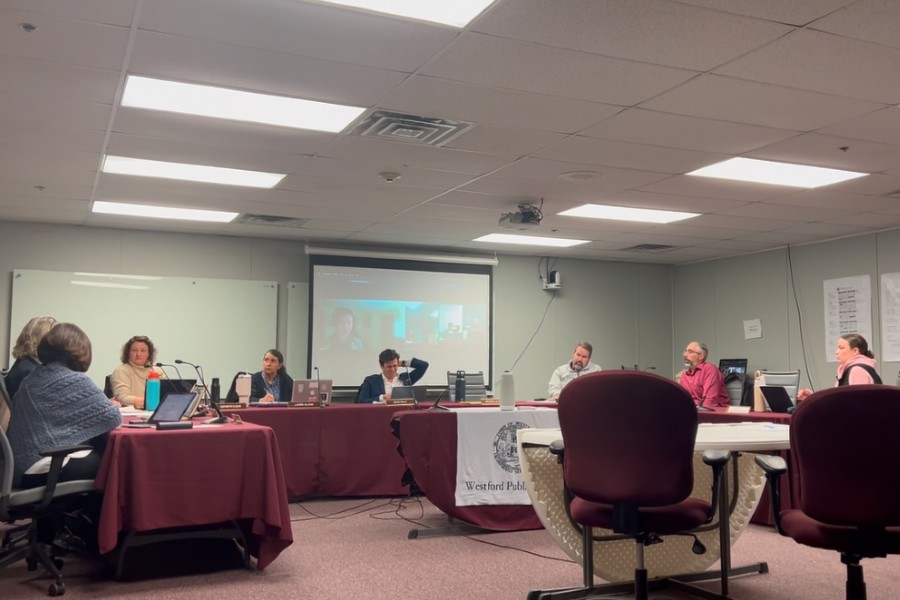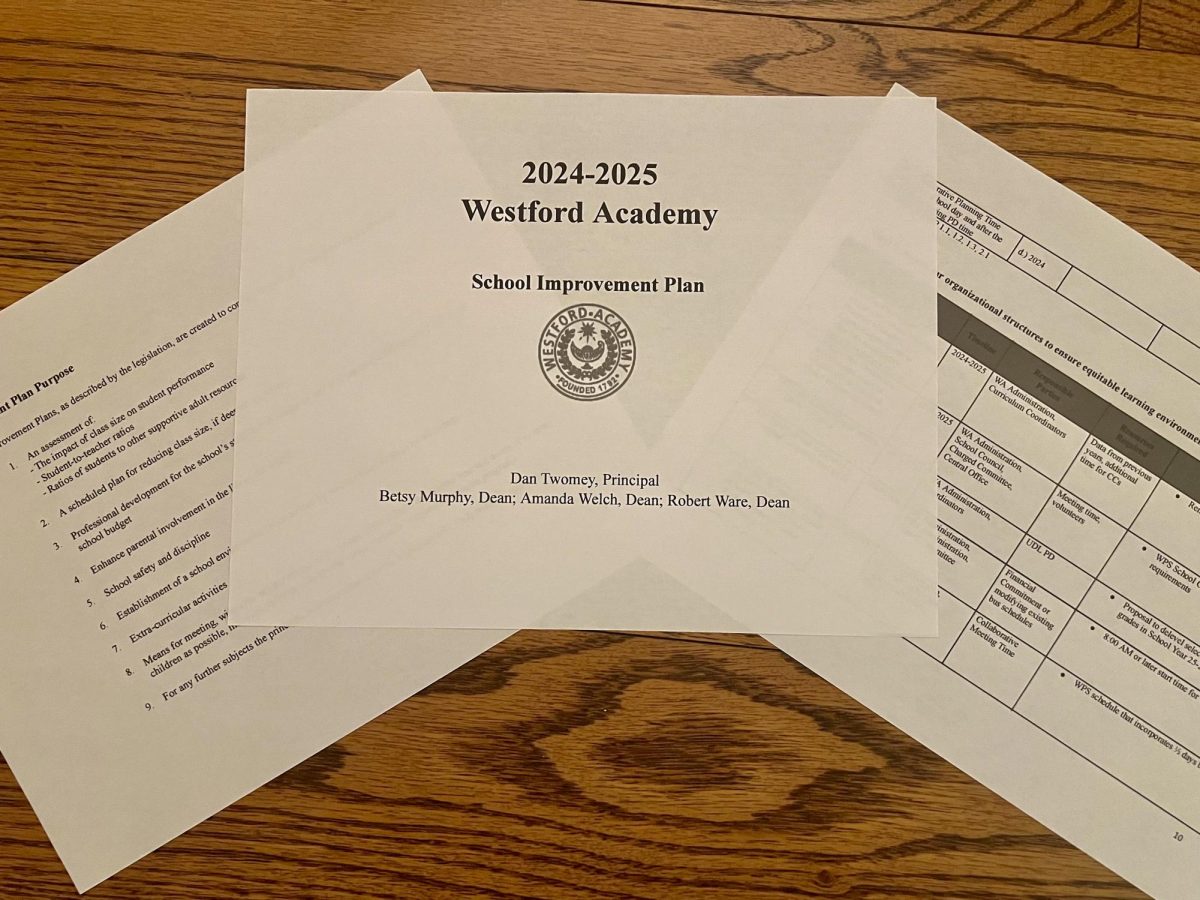By Andy Dunn
Staff Writer
This is part two of a three part investigative report on the upcoming teacher union negotiations. Part 1 summarized previous negotiation talks and the paradox found between Westford’s recent accomplishments in the face of below average school statistics such as the per pupil expenditure. Part 2 summarizes and analyzes the teacher union’s point of view and their most pressing concerns for the talks. Part 3 deals with the roles of the School Committee and Superintendent Bill Olsen in the talks.

Westford Education Association leader Jason Humphrey likens the Westford school system to the Minnesota Twins baseball team.
Humphrey says, “if you equate it to baseball, [the teachers union] is the Minnesota Twins. We make the playoffs pretty consistently but we don’t pay people. So they leave. They go and play for the Yankees.”
An attempt to simplify the upcoming teacher union negotiations, the baseball metaphor portrays the teacher union’s position on the talks aptly. In a sentence, the union believes school employees aren’t getting paid enough, and if this continues the deterioration of the Westford school system will rapidly speed up.
Although, it is important to note the superior level of academics currently found in the Westford school systems and the impact that success has had. Parents with children disproportionately flock to Westford for the school system, and the litany of awards bestowed to Westford’s school system show the incredibly quality of a Westford education.
The high density of students in Westford’s population has led to rapidly increasing class sizes, with elementary school classes pushing 25 kids in a room and classes at Stony Brook exceeding 27 per class. Humphrey calls this issue “a population problem” and needs to be addressed in the talks.
Yet when Humphrey hears of Westford’s recent accomplishments, as the Westford Education Association leader specifically, the awards are a “tremendous source of frustration” for the teacher union. “When you look at our pay, we are not anywhere near some of those other schools on the list,” Humphrey says.
The pay, or lack thereof, for Westford teachers is the main catalyst in Humphrey’s mind as to “the slow deterioration in the sense that teachers are leaving.” He continues, saying, “people are asking ‘why would I work for at Westford for $15,000, $10,000, $5,000, or even $3,000 less, whatever it may be.”
Pay for teachers is decided by a step scale format, where pay increases along with experience. According to Humphrey, Westford pays “pretty competitively for the first couple of years for teachers, but as they continue on in experience, we fall farther and farther behind in how we pay people.”
The end result of the current pay scale makes Westford “a great place to leave.” Young employees can come to Westford to gain valuable experience at one of the most prestigious schools in the area, then move on for better pay once they have basic experience and training under their belt.
The union does not want to be paid as a Wellesley, according to Humphrey, but just “wants to be in the same ballpark as other communities.”
Low pay is nothing new for town employees of Westford, as Humphrey remarks that Westford has “never been at the top of expenditures” and he thinks “we have always been consistently towards the bottom in terms of what we pay for education.”
Pay and increasing class sizes are not the only issues in need of reform and debate. The health insurance contribution rate of Westford is another concern. Westford pays 65% currently with the employee paying 35% according to Humphrey. Towns in the same county as Westford have much lower contribution rates for employees, with some towns paying for 70% or even 80% in some regions.
If all of these concerns are not addressed and rectified during the talks, Humphrey fears the slow deterioration of Westford could quicken. “Once you start down a slope where you are losing performance,” Humphrey notes, “it is hard to regain it.”
Finally, Humphrey emphasized the importance of keeping negotiations in correct context. “Ultimately, the best payment a teacher ever gets is how well the students turn out,” he says.
Humphrey emphasized the union is not trying to be greedy, something heard in the community constantly whenever talks occur.
Humphrey says, “at some point you have to make a stand,” and that stand is coming up rapidly for the teachers union.
One last analogy Humphrey uses for the talks is comparing the situation to buying a Ferrari but expecting to pay Honda Civic monthly payments.
Humphrey says, “if you keep asking your mechanic to work on your Ferrari with a Honda Civic’s budget, the mechanic finally is going to say they can’t do it.”







Melissa Bruneau • Oct 5, 2013 at 8:29 am
Well said Mr. Humphrey, well said!